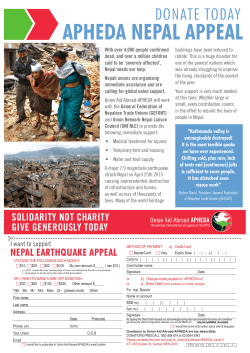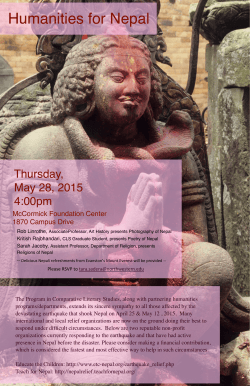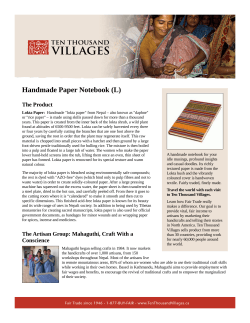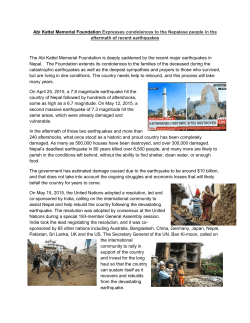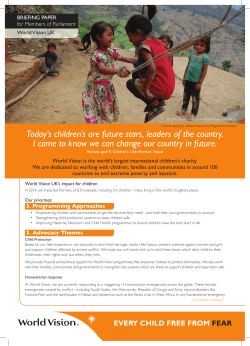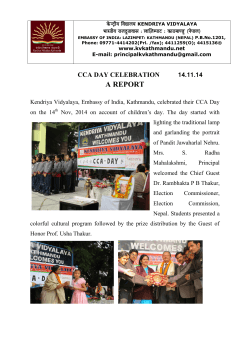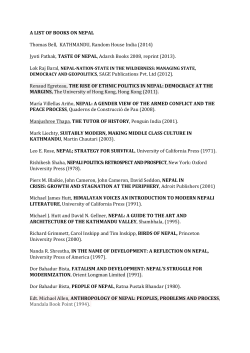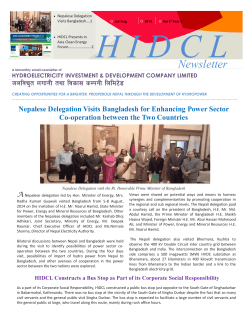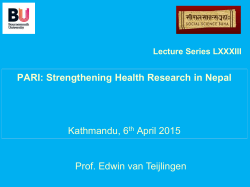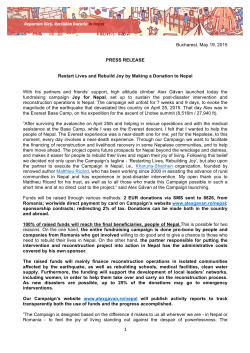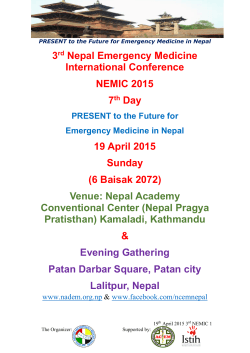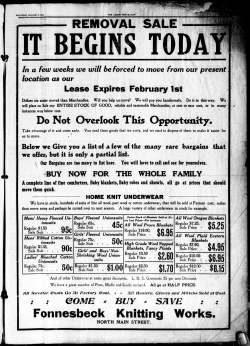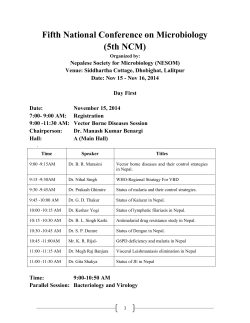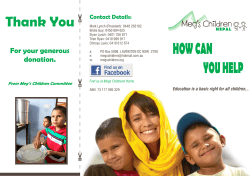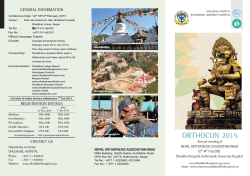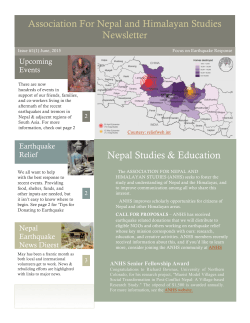
Knitted Wool Socks The Product
Knitted Wool Socks The Product Knitted Wool and Silk: Wash by hand and lay flat to dry. Wool Care: To wash, put a small amount of mild detergent in a basin with cold water and mix until fully dissolved. Soak the wool item in the basin while swirling it around for roughly 3-4 minutes. Remove the item from the basin and rinse it with cold water until the detergent is gone, being careful not to stretch the item while doing so. Put the item on a towel and allow it to dry for at least 10 hours. Actual time will vary based on material used and size. Do not squeeze or twist the product in order to get the water out, as this can cause damage. The Artisan Group: Kumbeshwar Technical School (KTS) Kumbeshwar Technical School (KTS) was founded in 1983 by Mr. Siddhi Bahadur Khadgi, a one-time State Council member, a butcher by trade, and manager of a bone fertilizer business. Having achieved success through his various enterprises, Khadgi decided to commit his time and finances to helping the poor in his neighbourhood. His sympathies lay, in particular, with those most socially disadvantaged: members of the “pode” caste who work as street sweepers and rickshaw drivers. Khadgi pledged to provide these socially disadvantaged youth with marketable skills that would enable successful self-employment. In 1987, his mandate expanded to include training for people in all low-caste communities, disabled individuals and destitute women. Fair trade is always in fashion… and these wonderful socks are no exception! Carefully hand-knitted using multi-coloured wool, not only will these socks keep your feet warm, but they will also help Nepalese artisans earn a sustainable living for their craft. Travel the world with each visit to Ten Thousand Villages. Learn how Fair Trade really makes a difference. Our goal is to provide vital, fair income to artisans by marketing their handicrafts and telling their stories in North America. Ten Thousand Villages sells product from more than 30 countries, providing work for nearly 60,000 people around the world. KTS offers training in wool-spinning, hand-knitting, carpet weaving (using 100 percent Tibetan sheep wool), carpentry and jewellery. Graduates of the training program have the opportunity to move into employment at KTS or to establish their own workshops. The 439 knitwear producers are home-based while the 38 carpet and furniture producers work on KTS premises. Environmentally friendly practices of KTS include the use of AZO-friendly dyes for carpets and the use of replanted trees from a community forest for their carpentry production. In addition to the technical school, KTS operates an orphanage for abandoned children, a nursery, a primary school for children of impoverished families and a workplace daycare. Other benefits include literacy classes, training in writing and basic numeracy, women's health education, health and accident insurance and access to loans. KTS is a member of the World Fair Trade Organization (WFTO) and Fair Trade Group Nepal. The Country: Nepal Draped along the spine of the Himalayas, Nepal is a landlocked country bordering the People’s Republic of China to the north and India to the south. For a relatively small country, Nepal boasts eight of the world’s fourteen highest mountains, including cloud-hugging Mount Everest. Time-worn temples, spectacular scenery and great trekking are all part of this country’s allure. Despite its scenic beauty and cultural treasures, Nepal remains one of the poorest and least developed countries in the world, with a 42 percent unemployment rate and almost one-third of its population living below the poverty line. Agriculture is the mainstay of the economy, providing a livelihood for three-quarters of the population and accounting for 38 percent of GDP. Nepal has seen progress over the years: access to health care has increased significantly, as has the number of households with access to electricity and sanitation. Approximately 80 percent of Nepal’s school-aged children attend classes, and infant mortality rates have dropped from 101 (per 1,000 live births) in 1990, to about 62 in 2008. Since 1996, however, conflict between Maoist insurgents and the government of Nepal has threatened development gains and led to a complex transformation of Nepalese society. Concerns over security have also affected tourism, a key source of foreign exchange. Facing a precarious future, job training and fair trade partnerships provide a vital lifeline for the people of Nepal. Mr Ram Baran Yadav became the first president of republican Nepal in July 2008, nearly two months after the country's new constituent assembly had voted to abolish the 239-year-old monarchy.
© Copyright 2025

